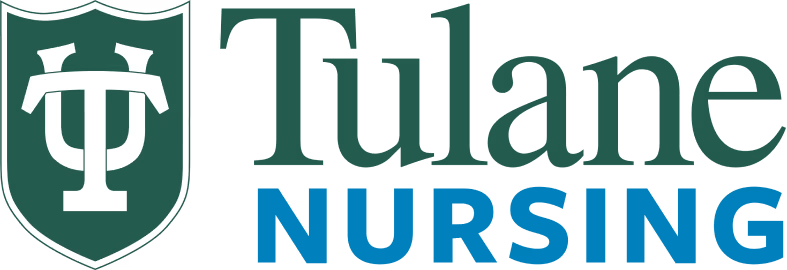What Can You Do With a Nursing Degree?
What can you do with a nursing degree? There are many different nursing careers to consider, including both bedside nursing careers and non-clinical options. Some examples of patient-facing roles include hospice nurse, certified nurse midwife and emergency room nurse. Non-clinical roles include nurse educator and nurse researcher.

Are you considering transitioning to a career in nursing? You likely have many questions, such as “What can you do with a nursing degree?”, “Where can nurses work?”, and “What does a BSN do?” A BSN, or Bachelor of Science in Nursing, can open the door to an incredible range of opportunities. A vast array of different nursing careers exists — both in and out of the hospital.
At Tulane University, our accelerated Bachelor of Science in Nursing (aBSN) program prepares highly competent and compassionate BSN-prepared nurses, ready to enter the workforce. Regardless of the nursing path you pursue, our aBSN program provides you with the knowledge and skills needed to excel. Through online coursework, skills labs and simulation experiences, and nursing clinicals, you will gain a solid nursing foundation and graduate with a BSN in as few as 16 months.
What can you do with a BSN? Your opportunities and prospective work environments can vary widely. Let’s explore some of the top bedside and non-bedside nursing career paths.
Bedside Nursing Careers
Many bedside nursing careers and clinical settings exist to choose from, both traditional and non-traditional. First, let’s answer the question, “Where can nurses work at the bedside?”
1. Hospice Nurse
A hospice nurse cares for terminally ill patients who are at the end of life, often within the patients’ homes. Hospice care does not focus on trying to treat the underlying terminal illness. Instead, hospice nurses try to keep patients comfortable so that they may pass with dignity.
In addition to the usual nursing requirements (e.g., a nursing degree and a state-issued nursing license), aspiring hospice nurses generally need several years of in-hospital clinical experience before pursuing a state-issued hospice nursing certification.
Hospice nurses need excellent emotional resilience, compassion, and empathy. They should also possess a keen understanding of how to comfort grieving patients and families.
2. Travel Nurse
The answer to the question “Where can nurses work?” is “Just about anywhere.” With demand for nurses practically everywhere across the country, nurses can have highly flexible careers if they value travel and exploring new locations. A travel nurse is a registered nurse (RN) who accepts short-term nursing assignments at hospitals and other medical facilities in various geographical areas.

Technically speaking, travel nursing isn’t a true nursing specialty. Rather, it encompasses a wide variety of nursing career paths. A travel nurse may be a critical care, emergency room, cardiac care, labor and delivery nurse, or something else entirely.
Travel nurses need several years of clinical in-hospital experience before applying to one or more travel nurse agencies. The travel nurse agency then connects the nurse to various job opportunities. On top of their salary, travel nurses receive additional benefits such as housing stipends or accommodations and moving stipends.
3. Certified Nurse Midwife
A certified nurse midwife (CNM) provides advanced nursing care to women across their lifespan. They provide primary care, gynecological care, family planning, and preconception care, along with care during pregnancy, labor, and delivery and postpartum.
A CNM is a type of advanced practice registered nurse (APRN). On top of the usual nursing requirements, all APRNs must have clinical experience as an RN, a graduate degree such as a Master of Science in Nursing (MSN) or Doctor of Nursing Practice (DNP), and board certification in their specialty.
The advanced education and training requirements naturally lend themselves to higher salary expectations. According to the U.S. Bureau of Labor Statistics (BLS), the median annual salary for a CNM was $129,650 as of May 2023.
4. Emergency Room Nurse
If you can think well on your feet, make appropriate decisions in high-pressure situations, and enjoy fast-paced work environments, then becoming an emergency room (ER) nurse may be the right option. ER nurses must quickly triage patients and prioritize the care of those with severe and life-threatening medical conditions. Working as part of a team, ER nurses administer treatments and provide patient education.

No special qualifications exist beyond the standard nursing credentials. However, after gaining several years of work experience in an ER, you may wish to pursue the certified emergency nurse credential from the Board of Certification for Emergency Nursing.
Non-Bedside Nursing Career Paths
What can you do with a nursing degree in work settings that take you beyond the bedside? Plenty of nursing careers in non-clinical roles do not involve providing direct patient care. Take a closer look at a few popular examples below.
5. Nurse Educator
If you are already in nursing school, then you have already interacted with nurse educators. Nurse educators are nursing instructors who train students to become RNs. They can work in nursing school programs or teaching hospitals. To be effective in this role, you must have very strong communication skills, the ability to connect with others, and solid knowledge of nursing principles and best practices.
After (or while) gaining some clinical work experience, aspiring nurse educators will need to earn a graduate degree. An MSN is considered the minimum qualification for a nurse educator, but many positions may require a DNP. Some positions may also require nurse educator certification.
According to the BLS, the national median annual salary for nursing instructors and teachers was $86,530 as of May 2023.
6. Nurse Researcher
A nurse researcher works on medical trials to develop and test the safety of new medical treatments and procedures. They are generally responsible for recording scientific data and monitoring study participants.

Although this career is considered a non-bedside role, nurse researchers do need to assess patients’ health as the medical trial progresses and ensure that patients adhere to the study protocols. The priority is maintaining their safety and health.
The requirements to become a nurse researcher vary, but these professionals are generally expected to have at least an MSN and possibly a DNP, as well as clinical nursing experience. Nurse researchers may obtain a certification from the Association of Clinical Research Professionals.
According to the American Nurses Association, the average annual salary of a nurse researcher can range between $90,000 and $100,000.
7. Nurse Administrator
Nurse administrators are licensed RNs who step into managerial and supervisory roles within medical facilities. Nurse administrators may manage a department or an entire health facility, overseeing staff, recruiting, monitoring nursing performance, and liaising with other hospital administrators to ensure that the nursing department’s needs are fulfilled.
Aspiring nurse administrators need at least several years of clinical nursing experience and typically have an MSN in health administration. They may also obtain the Nurse Executive Board Certification from the American Nurses Credentialing Center.
According to the BLS, all types of medical and health services managers made a median annual salary of $110,680 as of May 2023.
8. Legal Nurse Consultant
What can you do with a BSN in the legal field? More than you might think. Medical issues are often entangled with legal issues, such as in personal injury civil cases and sexual assault criminal cases. The job of the legal nurse consultant is to review medical information in cases and provide guidance on those issues to attorneys. They may also serve as expert witnesses during civil and criminal trials.
After obtaining clinical nursing experience, an aspiring legal nurse consultant may begin pursuing work in this nursing specialty. Law firms, insurance companies, health facilities, forensic organizations, and patient safety organizations may all hire legal nurse consultants. Some consultants even start their own consulting firms.
Certification in this specialty is not necessary but may be helpful to enhance employment qualifications.
Begin Your Nursing Career at Tulane Today

What can you do with a BSN? Many different nursing careers exist to choose from, but no matter where you end up, you can begin your nursing journey with Tulane University’s aBSN program. If you meet our admission requirements, you can graduate with a BSN in as few as 16 months at one of the most innovative universities in the U.S.
At Tulane, you’ll gain inter-professional experience, as our aBSN students work alongside our medical students in skills labs and simulation experiences. Additionally, our aBSN students are immersed in the local community starting in the first semester, and we offer robust student support services.
Contact an admission counselor today to learn more about earning your BSN in New Orleans, an exciting city filled with healthcare opportunities, music, arts, and culture.

